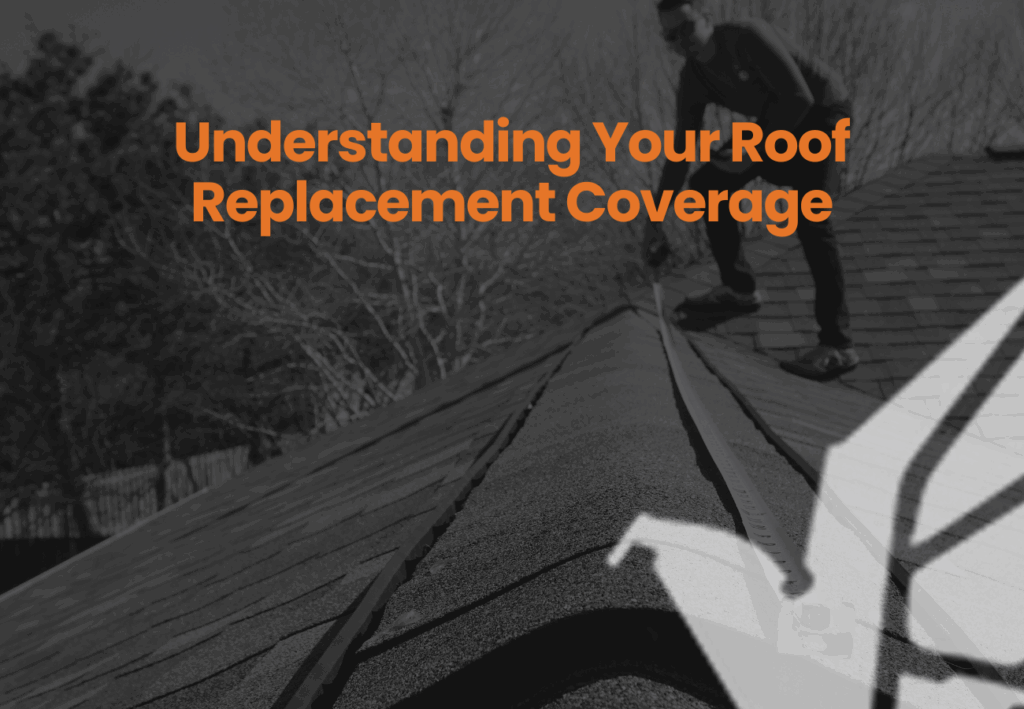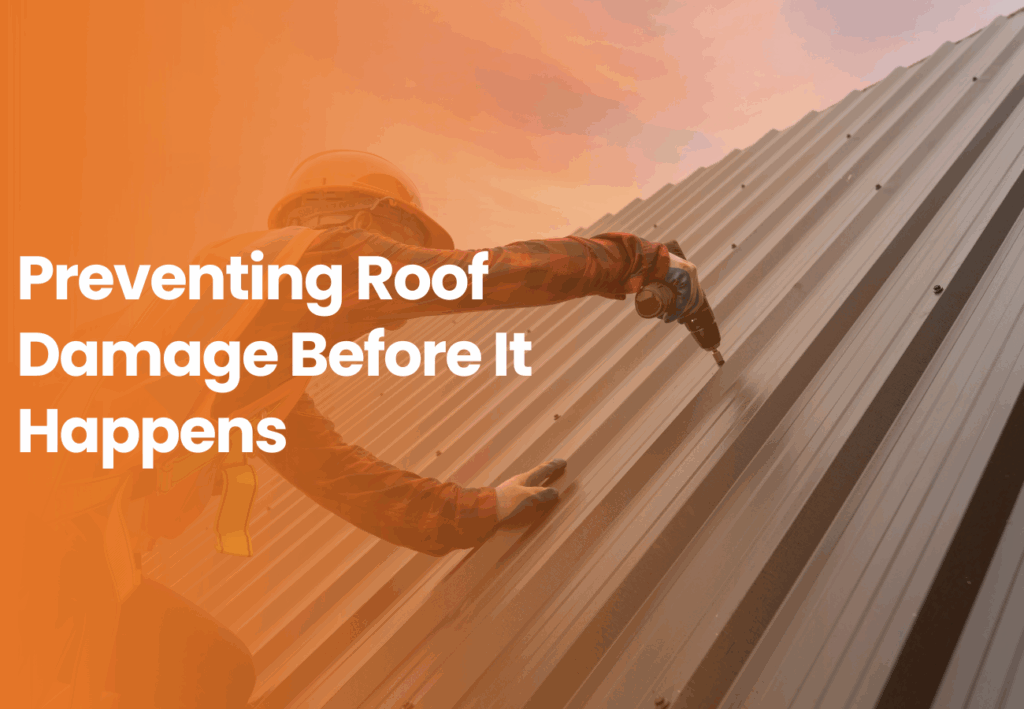
Why Timing and Contractors Matter for Roof Replacement Claims
The Importance of Timing When Filing a Roof Claim
When a storm causes damage, many homeowners are eager to file an insurance claim right away. However, filing too soon or without proper inspection can lead to more problems than benefits. If your roof is not leaking or showing signs of severe damage, it’s crucial to wait until the right time to file a claim. Filing prematurely can lead to denied claims, leaving you without coverage for future damage. Additionally, filing without understanding the specifics of your policy could lead to higher premiums, making the cost of filing a claim much more than expected in the long run.
Why Waiting Could Save You Money
Not all storm damage is immediately visible, and some roof issues develop over time. Before filing a claim, ensure that there is clear evidence of damage that justifies a claim. If your roof shows minor damage or isn’t causing leaks, waiting for a more significant issue may be a better approach. Consulting with a trusted roofing professional can help you make a more informed decision. In doing so, you might avoid unnecessary claims that can lead to rate hikes or denials in the future.
How Insurance Policies Handle Roof Claims Differently
Understanding your policy is key when dealing with roof replacement claims. Different policies have varying coverage, such as replacement cost coverage or actual cash value coverage. Some policies may reduce payouts based on the age of the roof, which can significantly affect your final claim amount. Familiarize yourself with your policy’s terms before you file to ensure you know what to expect. Knowing whether you have a replacement cost or actual cash value policy will help you make better decisions and avoid surprises later on.
Avoiding Common Mistakes with Roofing Contractors
Beware of Contractors Offering ‘Free Roofs’ or Waiving Your Deductible
After a storm, roofing contractors often show up unsolicited, offering free roof replacements or offering to waive your deductible. While this might seem like a good deal, it can lead to significant financial and legal consequences. Offering to waive your deductible is considered insurance fraud and may leave you responsible for legal actions or charges. Always be cautious when dealing with contractors promising ‘too good to be true’ deals, as they may not have your best interests in mind.
How to Avoid Roofing Scams After a Storm
Not all roofing contractors operate with honesty and integrity. Some will show up after storms, offering quick fixes or even free roof replacements. These contractors may also encourage you to file a claim when the damage doesn’t justify it. To avoid these scams, always hire a reputable, local, and licensed contractor. Ask for referrals, check online reviews, and ensure the contractor has the proper certifications and insurance. Don’t sign any contracts until you fully understand the terms and costs involved.
The Risks of Hidden Fees and Contracts You Don’t Understand
Many homeowners overlook the details in roofing contracts, leading to unexpected costs down the road. Some contracts may include hidden fees such as inspection charges, marketing costs, or additional repair fees, even if no damage was found. Always read the fine print and ensure that the contract is clear before signing. If a contractor is unwilling to answer your questions or provide full transparency, it’s a red flag. A reputable contractor will be open and upfront about all costs involved.
Understanding Your Roof Replacement Coverage
Replacement Cost vs. Actual Cash Value: What’s the Difference?
When considering roof replacement insurance claims, it’s essential to understand the difference between replacement cost and actual cash value coverage. Replacement cost coverage pays for the full replacement of your roof without factoring in depreciation, while actual cash value takes depreciation into account, which could leave you with a lower payout. Knowing which type of coverage you have is crucial in understanding what you’ll be reimbursed for when it comes time to replace your roof.
How Age and Condition of Your Roof Impact Your Claim

The age and condition of your roof can affect how much your insurance will pay out. Many policies reduce the payout for older roofs or roofs that are in poor condition. If your roof is nearing the end of its lifespan, it’s important to understand how this will impact your claim. Work with your insurance agent to understand the details of your policy and ensure that you have the coverage you need based on your roof’s age and condition.
Understanding Your Insurance Policy’s Payment Schedule
Some insurance policies include a payment schedule that gradually reduces the payout based on the roof’s age or wear and tear. This can be an essential factor in determining how much you’ll receive after filing a claim. Knowing this before a claim is filed will help you better understand what to expect in terms of compensation and avoid any surprises.
How to Choose a Reputable Roofing Contractor
The Importance of Hiring a Licensed, Local Contractor
One of the most important steps in the roof replacement process is hiring a licensed, reputable roofing contractor. Local contractors are often more reliable because they have a vested interest in maintaining a positive reputation within the community. They also understand local building codes, weather conditions, and the specific needs of homes in the area. Always check a contractor’s credentials and look for verified reviews before making your decision.
Why Experience Matters When Choosing a Roofer
Experience is crucial when selecting a roofing contractor. Seasoned professionals have the knowledge and skills to handle a variety of roofing issues, ensuring the job is done correctly the first time. They are also more likely to provide a reliable warranty on their work and handle any future issues promptly. Look for contractors with a proven track record and years of experience to ensure quality service and peace of mind.
Ask for References and Review Portfolio Work
A trustworthy contractor should be willing to provide references and show examples of previous projects. This allows you to gauge their work quality and professionalism. Additionally, checking with past clients will give you insights into their reliability, work ethic, and overall customer satisfaction. Contractors who are proud of their work will have no problem sharing their portfolio and positive feedback from customers.
What to Do If Your Roof Replacement Claim Is Denied
Common Reasons for Roof Claim Denials
Roof replacement claims can be denied for various reasons, including lack of sufficient damage, policy exclusions, or failure to meet claim deadlines. Understanding why a claim was denied is the first step in disputing the decision. Work with your insurance agent to review the claim, documentation, and policy terms to see if you have grounds for an appeal.
How to Appeal a Roof Replacement Claim Denial
If your claim is denied, you have the right to appeal the decision. Start by reviewing your policy carefully to ensure that your claim was submitted correctly and meets the policy’s requirements. Provide additional evidence if necessary, such as expert assessments or further documentation of the damage. Your insurance company may require additional information before they reconsider the claim.
Work with Your Insurance Agent for Guidance
If your roof replacement claim is denied, consult with your insurance agent for help navigating the appeals process. They can help you gather the necessary documentation, advise you on the best steps to take, and communicate with the insurance company on your behalf.
Preventing Roof Damage Before It Happens

Regular Roof Inspections and Maintenance
The best way to avoid costly roof replacements and insurance claims is through regular maintenance and inspections. Schedule periodic roof checks to identify potential problems before they become significant issues. Early detection of wear and tear can help prevent leaks and further damage, saving you time and money in the long run.
Keep Gutters and Drainage Systems Clear
Clogged gutters can lead to water damage on your roof and in your home. Regularly clean your gutters and ensure that your drainage system is functioning correctly to prevent water buildup. Water pooling on your roof can cause severe damage, which might require costly repairs or even a full replacement.
Tree Trimming and Storm Protection
Overhanging branches can cause damage to your roof during storms. Trim any trees near your roof to reduce the risk of branches causing damage. Additionally, take preventive measures such as installing storm shutters or reinforcing roof structures to ensure your home is better protected during severe weather events.
The Role of Eagle National Insurance in Roof Replacement Claims
Expert Advice on Filing Roof Claims
At Eagle National Insurance, we understand the complexities of filing roof replacement claims. We guide you through the entire process, from understanding your policy to working with contractors. Our team is dedicated to helping you protect your home and avoid costly mistakes during storm recovery.
Tailored Insurance Solutions for Homeowners
Every homeowner’s needs are different, which is why we offer customized insurance solutions. Whether you need full coverage for roof replacements or additional storm protection, we’ll help you find the right policy that fits your specific situation.
Helping You Navigate Insurance Complexities
Dealing with roof damage and insurance claims can be overwhelming. At Eagle National, we provide clear, concise guidance to help you navigate your insurance policy, manage claims, and ensure that your home is covered properly.
